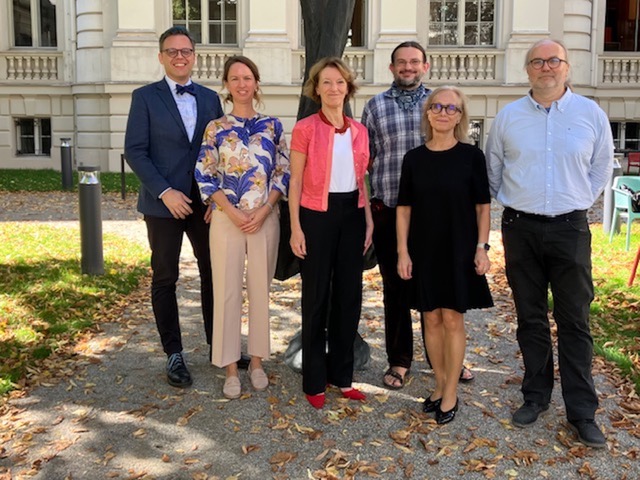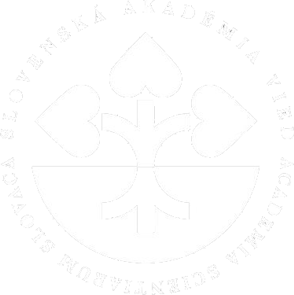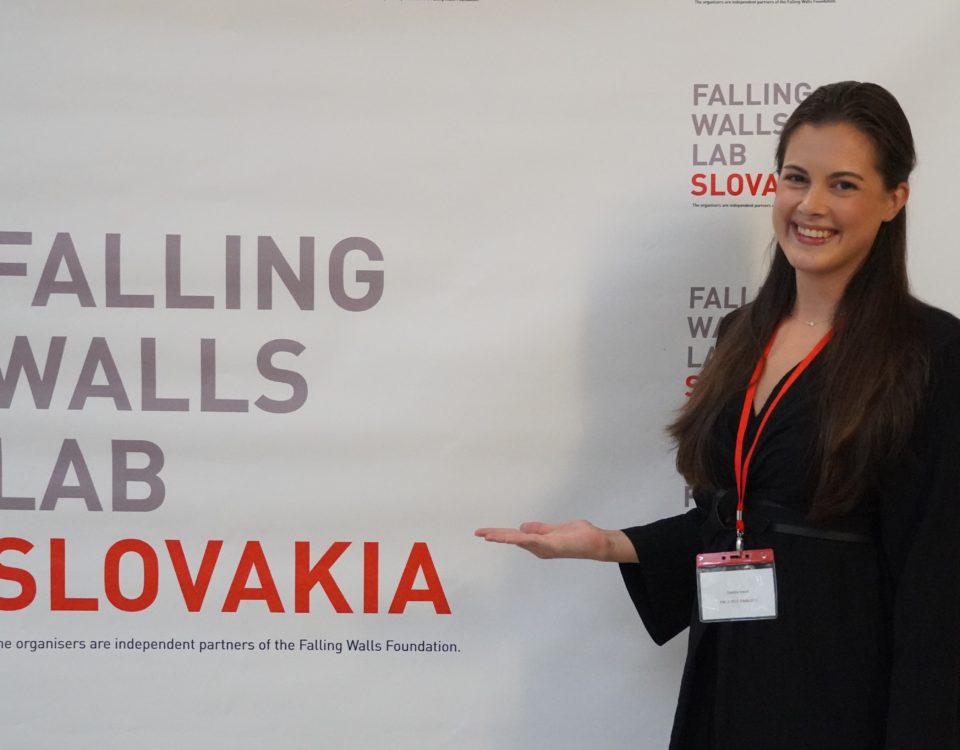This website uses cookies so that we can provide you with the best user experience possible. Cookie information is stored in your browser and performs functions such as recognising you when you return to our website and helping our team to understand which sections of the website you find most interesting and useful.
ERC President Maria Leptin promised support for Slovak scientists

Participants in the meeting, from left: Vice-President of the Slovak Academy of Sciences for Science, Research and Innovation Dr. Tomáš Hromádka, BMC2ERC platform coordinator Zuzana Reptová, ERC President Prof. Maria Leptin, ERC project holder from the Faculty of Natural Sciences of Comenius University Dr. Michal Májek, BMC SAV Director General Prof. Silvia Pastoreková, and BMC SAV neurobiologist Dr. Peter Hubka, who is preparing to submit an ERC project.
On September 11, representatives of the Slovak Academy of Sciences, the Biomedical Research Center of the Slovak Academy of Sciences (BMC SAS), and Comenius University met with Professor Maria Leptin, President of the European Research Council (ERC), at the Complexity Science Hub research institute in Vienna. The aim of the meeting was to discuss ways of strengthening the interest of the scientific community in Slovakia in the most prestigious projects in the ERC scientific community, as Slovakia is currently lagging behind in obtaining them. At the meeting, Professor Leptin promised to visit Slovakia, meet with our scientific community, and support the motivation of our researchers to obtain ERC projects.
“The meeting with Maria Leptin was very inspiring, and we greatly appreciate her visit. The discussions focused on sharing experiences, discussing where we see opportunities in ERC projects for scientific research at our workplaces, as well as the obstacles we encounter,” explains BMC SAS Director General Professor Silvia Pastoreková.
In addition to Professor Pastoreková, BMC SAS was represented at the meeting by neurobiologist Dr. Peter Hubka and Zuzana Reptová, coordinator of the BMC2ERC platform, which was created to support the preparation of ERC projects at BMC SAS. The meeting was also attended by Dr. Tomáš Hromádka, Vice-President of the Slovak Academy of Sciences for Science, Research and Innovation, and Dr. Michal Májek from the Faculty of Natural Sciences at Comenius University, the current holder of the ERC project.
Participants had the opportunity to briefly discuss with the founder and chairman of the Complexity Science Hub, Austrian professor and physicist Stefan Thurner, and with former ERC president Professor Helga Nowotny, professor emeritus of social sciences at ETH Zurich.
At the meeting, Professor Leptin pointed out that obtaining an ERC grant is not the only attribute of a scientist’s quality, but it is a great opportunity to implement original and groundbreaking projects. Special attention must be paid to the preparation of projects, and it is necessary to try again to obtain them. Through repeated attempts, scientists gain valuable feedback that can help them ultimately obtain the grant. The only criterion for the evaluation and selection of research projects for these prestigious grants is the uniqueness of the scientific idea.
Within the BMC2ERC platform, which has been operating since February this year, several researchers at BMC SAS are preparing to submit ERC projects.
There are three main grant schemes: ERC Starting Grants, designed to support projects by young scientists who are starting to develop independent careers and create their own scientific teams; ERC Consolidator Grants, which support projects by scientists in the process of consolidating their own scientific teams, and ERC Advanced Grants, a scheme designed for established researchers who have already achieved recognized results at the international level or influenced their field of science.
Support is given primarily to interdisciplinary projects that transcend the boundaries of different research areas, groundbreaking projects addressing new areas of research, or proposals for the introduction of unconventional and innovative approaches in science.
Text: E. Rybárová, BMC SAS
Photo: S. Simmross, European Research Council Executive Agency








